
 This article is an excerpt from Episode 9 of Alchemy-Spetec's podcast The Injection Connection, featuring Charlie Lerman "The Grout Geek". Charlie is Director of Technical Services - Leak Seal® Division at Alchemy-Spetec. The Injection Connection is hosted by Jim Spiegel: Vice President of Alchemy-Spetec and Board Member at the International Concrete Repair Institute. (If you'd rather listen, an audio version of this excerpt is posted at the bottom of the article.)
This article is an excerpt from Episode 9 of Alchemy-Spetec's podcast The Injection Connection, featuring Charlie Lerman "The Grout Geek". Charlie is Director of Technical Services - Leak Seal® Division at Alchemy-Spetec. The Injection Connection is hosted by Jim Spiegel: Vice President of Alchemy-Spetec and Board Member at the International Concrete Repair Institute. (If you'd rather listen, an audio version of this excerpt is posted at the bottom of the article.)
Jim Spiegel: I always say to people is you should account for some exploration time. Everybody wants to go quick into, "What are the coverage rates, how many linear feet can I do in a day, how many people do I need, what’s the size of the crew, how many man hours as a prevailing wage." But I like to tell people let’s put half a day, even up to a full day depending on the job, into exploration. Would you agree with that?
Charlie Lerman: 100%. Exploratory grouting is the way to go. And on smaller jobs a lot of times, that’s going to knock out the whole job anyway. But when you get to those larger jobs for curtain grouting and crack injection, just having that day to look at and say, “These are the parameters. We think we’re going to be between this and this mark and by this procedure.” You go out there and you find - well, did I fall in that, where did I fall in that and if so, how are we going to adjust out the rest of the job now that we know some specifics there? But until you get out there, it’s really all theory. I’m in tons of meetings where there’s all this theory crafting and people talk about this stuff. And while this theory crafting is great and we need to do it to wrap our heads around the situation, it comes down to it when you’re actually injecting, you don’t have precise control over your liquid, you don’t know exactly where it went. You can only see the result and make assumptions. Whatever I pictured in my mind is what I can say happened in there, but until we rip that open, which almost never happens, you don’t know exactly how it went inside. So again, all that theory and stuff, that’s all great to talk about. But until you put the wheels on the road and see what happens, you just don’t know. I’ve seen stuff where you just start scratching your head - how could this be going that way? But it does and you figure it out and work through it.
Listen to the audio version of this excerpt...



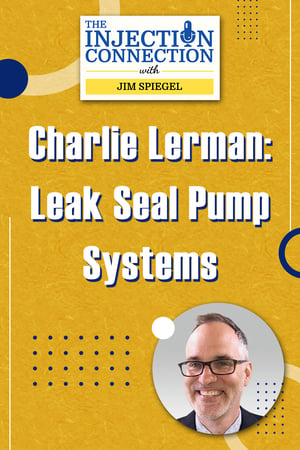 This article is an excerpt from
This article is an excerpt from 
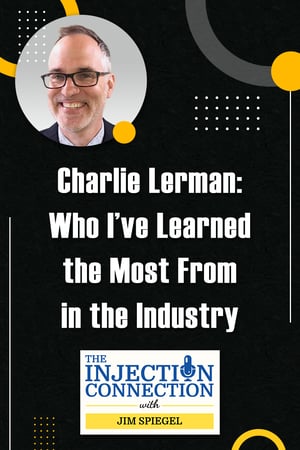 This article is an excerpt from
This article is an excerpt from 
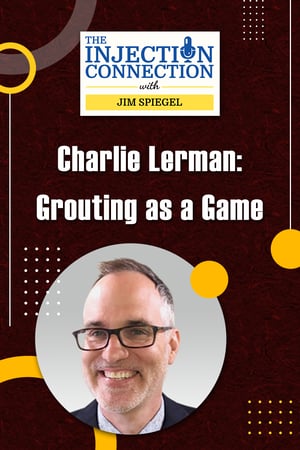 This article is an excerpt from
This article is an excerpt from 
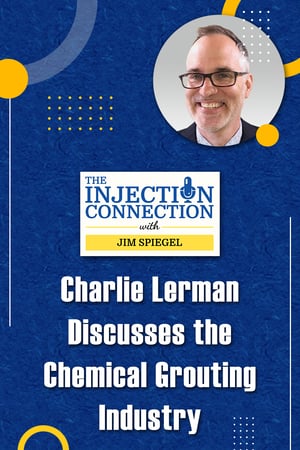 On this episode of
On this episode of 
 In January of 2020, Alchemy-Spetec launched
In January of 2020, Alchemy-Spetec launched 









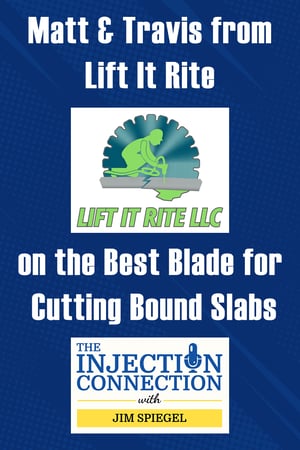


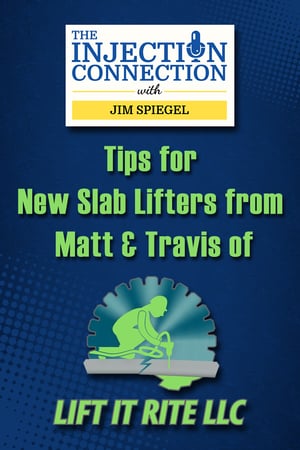

 Alchemy-Spetec is pleased welcome Colt Hullander! Colt will join us as the new Director of Technical Services – Geotech Division, supporting Alchemy-Spetec customers on a wide variety of polyurethane jobs, from slab lifting to soil stabilization and seawall repair. He brings a decade of geotech experience to the team.
Alchemy-Spetec is pleased welcome Colt Hullander! Colt will join us as the new Director of Technical Services – Geotech Division, supporting Alchemy-Spetec customers on a wide variety of polyurethane jobs, from slab lifting to soil stabilization and seawall repair. He brings a decade of geotech experience to the team.
 On Episode 8 of The Injection Connection, Jim sits down with Matt Chittick and Travis Germick, co-owners of
On Episode 8 of The Injection Connection, Jim sits down with Matt Chittick and Travis Germick, co-owners of 